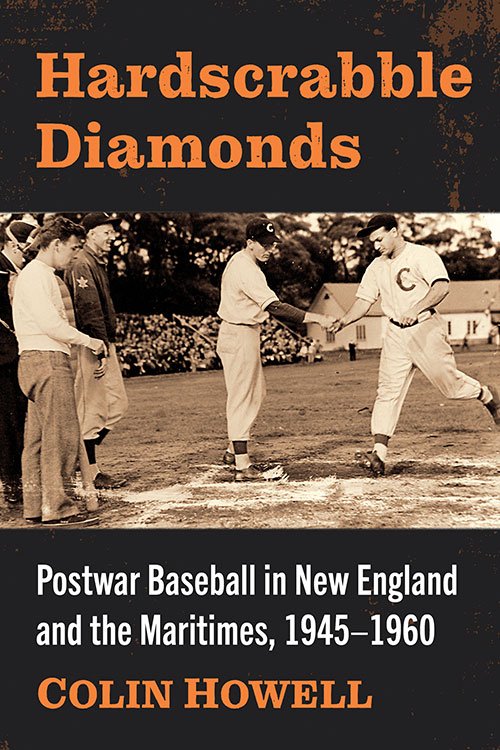A new book offering historical insight into the early and ongoing challenges of democracy in the United States launched on November 6, as Fall Reading Week began at Saint Mary’s University.
The American Liberty Pole: Popular Politics and the Struggle for Democracy in the Early Republic (University of Virginia Press, 2023) was written by Dr. Shira Lurie of the Department of History. Her Halifax book launch took place at the Glitter Bean Café and online, with a presentation and Q&A.
Lurie’s book launch at Glitter Bean Café in November
“It’s exciting to finally have it out there,” says Dr. Lurie, who began researching the topic nearly a decade ago. “I’ve been workshopping it among historians, so it will be nice to get some thoughts from people who aren’t in the field. You don’t have to be an expert on American history or politics to get something out of it.”
During the American Revolution and into the early republic, “liberty poles”—tall wooden poles bearing political flags and signs—were a central fixture as a form of political expression and public dissent, often leading to conflict and confrontation. Protesters raised liberty poles as a sign of resistance to government rule, while counter-protesters often tore them down.
The first comprehensive study of the liberty pole phenomenon, the book highlights the influence of ordinary citizens as U.S. political culture developed. Dr. Lurie demonstrates how, in raising and destroying liberty poles, Americans put into practice the types of popular participation they envisioned in the new republic. She also makes compelling links between past and present, demonstrating the long history of American debates over protest, monuments, elections and free speech.
“We can trace these questions and controversies all the way back to the beginning of the United States,” says Lurie. “The book also shows the Constitution didn’t come with an instruction manual on how to run a republic, how to become a citizen when you were once a subject, or what it means to vote in an election or protest a government comprised of your own elected representatives.”
Liberty pole arguments could get heated and even violent, as ordinary Americans tried to figure out their role in the new republic – and the republic’s role in the rest of the world.
“They were walking an uncharted path and I try to help my students understand it wasn’t just about ‘will the American experiment succeed,’” says Lurie. “A lot of Americans wanted theirs to be the first in a series of revolutions that would topple monarchies around the world. They wanted to show that the best form of government is republicanism, self-government.”
It was a new concept and if they succeeded, it could trigger other revolutions beyond the U.S. “but if they failed, they feared that they would doom the world to the shackles of monarchy forever, so the stakes were incredibly high,” Lurie says.
With the advent of the two-party system, liberty pole debates ultimately got channeled into the political parties. At first suspicious of these new institutions, Americans began trusting them and thus political change became more about getting the right people elected.
“This governing system was designed to put a very small group of people in charge, and to make sure that their power was protected,” says Lurie, adding that the resulting “partisan pendulum locks America into a pretty narrow range of what’s possible to achieve politically.”
She hopes the new book can help to inspire deeper questions about structural and institutional reform.
“The way that American politics functions now is not the result of a kind of divine revelation, it’s the result of choices,” she says. “There’s nothing in that early period that said ‘This is the absolute way to do things,’ which is why there was so much contention then and why it continues today.”
As the U.S. continues to struggle with questions of democracy, protest and free speech, students in Lurie’s history classes are keen to make the connections between past and present.
“Students consume a lot of media so they want to talk about it. They have a natural curiosity and they ask really good questions,” says Lurie, whose fall courses include “Protest in the Early United States” and “American History, American Controversy”.
Further reading:
Author’s Corner blog, UVA Press; Author’s Corner with Shira Lurie
Learn more about Dr. Lurie at www.shiralurie.com and follow her on Twitter/X at @ShiraLurie.
“Johnson's speakership is bad for Democrats — but not for reasons you think," an op-ed piece by Dr. Lurie in The Toronto Star, November 4, 2023
Reading Roundup for Fall Reading Week
Here’s a sample of other recent publications written or edited by faculty members at Saint Mary’s University. Click the covers below for more information.











